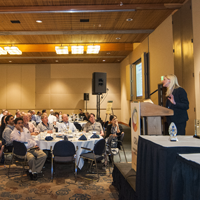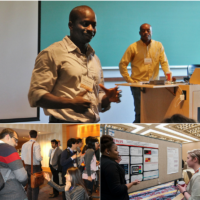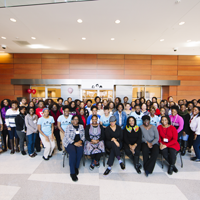
Nominations Open for CRA Distinguished Service and A. Nico Habermann Awards
The Computing Research Association invites nominations for the 2018 CRA Distinguished Service Award and A. Nico Habermann Award.
The CRA Distinguished Service Award is presented to a person who has made an outstanding service contribution to the computing research community. The CRA A. Nico Habermann Award is presented a person who has made outstanding contributions aimed at increasing the numbers and/or successes of underrepresented groups in the computing research community.














